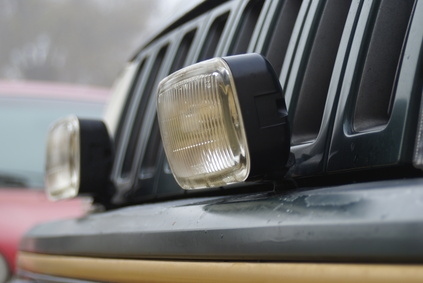
Troubleshooting your 2000 Jeep Cherokee's engine problems is a process of elimination. Begin with the most basic and obvious possible causes and move on to the more expensive and complicated. Keep an eye on your gauges for an indication of the root of your troubles. Check for low oil pressure, low voltage on your battery and overheating temperatures. Routine maintenance, such as getting your oil changed on schedule and having your transmission fluid checked, helps you avoid problems in the long run.
Check your fuses. Depending on your model, the fuse panel is either under the driver's side dash or under the hood in an easily identifiable compartment. Pull the fuses by hand with a fuse puller to inspect them visually. This is the least expensive method, but some breaks are so small they're easily missed. Use a fuse tester by turning the car on, grounding the tester and pressing the tip to each fuse in turn. If the bulb doesn't come on, the fuse is broken.
Test your battery for sufficient power. The alternator generates power for the battery to use, and the battery stores the power while the engine is running. Turn the Cherokee's engine off and test the battery by connecting the positive wire on the volt meter to the positive post on the battery (they will both be red). Do the same for the negative terminals. The battery should read between 12.5 and 12.8.
Test your alternator for sufficient power. Turn the engine over and test the battery posts as in Step 2. This time the volt meter should read between 13.6 and 14.3.
Pull your engine's codes. When a problem occurs, a code is stored in the Cherokee's computer for your use. Turn the engine off, then turn it on and off in sequence (on, off, on, off, on). With older vehicles, this needs to be done within five seconds, but on the 2000 Cherokee that isn't necessary. Watch your "check engine" lights for the two-digit codes, indicated by flashes for the first digit, a pause and more flashes for the second digit. Look up the codes in your manual or online.
Check your fluids. Running too low on oil causes your Cherokee to overheat, and dirty oil will cause it to overheat and run raggedly. Running too low on transmission fluid causes the transmission to delay and creates hard shifting. Both can cause serious damage to your engine.
Check under the hood for obvious signs of problems. Look for wires that have come loose, belts with no tension or frayed edges. Check your battery for corrosion. Inspect your radiator for clogs, corrosion and signs of overheating.